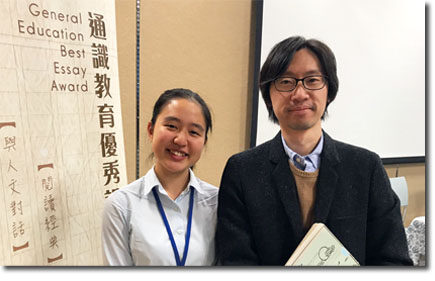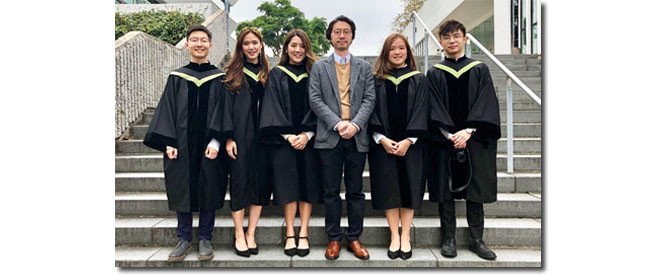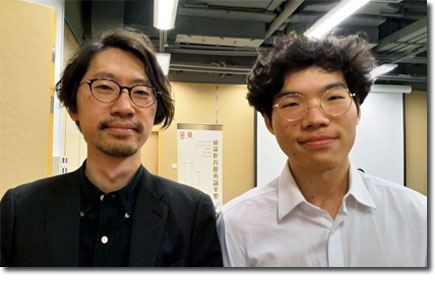Teaching Philosophy
My philosophy of university teaching is to cultivate students to become intellectually critical and morally responsible citizens. I believe that a comprehensive General Education curriculum design should be well integrated with elements of philosophy, literature, political theory and history so as to enable the university to accomplish the task of nurturing future citizens. Teaching classics in the format of mandatory course in the case of UGFH1000 In Dialogue with Humanity is an essential platform to provide moral and civic education to all students. That said, one should avoid defining classics, as in the traditional Great Books Programme, as sacred writings that convey ultimate ideals for good life and good society. To avoid moral conservatism and paternalism, I do not adopt the essentialist approach to the interpretation of classics in class that is supposed to conduct values education on topics such as meaning of life, human existence, ethical relationship, human suffering, death and transcendence, political legitimacy and social justice. The curriculum should not lie in the study of the text in itself (unlike a classics studies course), nor the texts are the ultimate answers to our humanities questions (unlike a conventional Great Books course). Rather, it should emphasize on the learning scenario of different humanities issues through the collective experience of reading these classics from teacher and students.

On this basis, I follow a dialogical approach to conduct a values education pedagogy that connects texts, issues, and participants (oneself, fellow students & teacher) in the context of realizing good life and good society. The dialogical approach does not deny the values of classics. There are a lot of good reasons for reading classics, though it is not necessary for us to agree with the ideological judgements underlying the text. What I care most is the transformative experience of getting through a good quality of work in humanity classics. Certainly, there is a prerequisite to attain intellectual satisfaction. And I would be responsible for assisting students to acquire academically rigorous understanding and interpretation of the texts. Students are encouraged to discuss the moral and ethical issues through engaging narratives, philosophical reasoning, storytelling, and case study arising from the textual analysis. On such dialogue among texts, issues, and human interaction, I aim at cultivating moral personhood that is capable of reconciling rationality, sentiment, and bodily existence in one’s life scenario.

Curriculum design is also important to effective teaching and learning. Apart from deploying appropriate teaching methods in facilitating dialogues, I think that it would be indispensable to construct an overarching conceptual framework to accommodate all course materials for this core-texts curriculum. Otherwise, it would become confusing and less purposeful in reading a package of classical texts in which their variations span across perspectives, cultures and issues. Therefore, in teaching UGFH1000 In Dialogue with Humanity, I propose the idea of ‘autonomy’ as the key reference point for evaluating good life and good society in order to build up a conceptual schema to accommodate different texts in the syllabus. On one hand, each text is assigned to a particular humanity issue, such as human existence, moral awareness, love, suffering, political legitimacy, distributive justice etc. and these texts are categorized into three sections, namely ‘Self and Human Capacities’, ‘Faith and Human Limitation’ and ‘Self in Social Institutions’. Part of my tasks would be facilitating students to understand the texts and to get along with different interpretations in accordance with the relevant cultural and historic backgrounds. On the other hand, we would evaluate these interpretations from the experiences of modern times and testify those normative claims of the texts in reference with the idea of autonomy. In doing so, we would avoid an essentialist approach on interpreting the texts (as sacred writings), since the teacher does not intend to indoctrinate students with the normative values of the texts and at the same time, the curriculum would not get caught from being criticized as alienated from values engagement. A core-text course, as a version of values education, should not stand away from normative values. The idea of autonomy, which, I believe, is not a product of any version of comprehensive doctrines, is therefore the best conceptual schema to nurture morally responsible citizens and inform them of the phenomena of human world.

|


